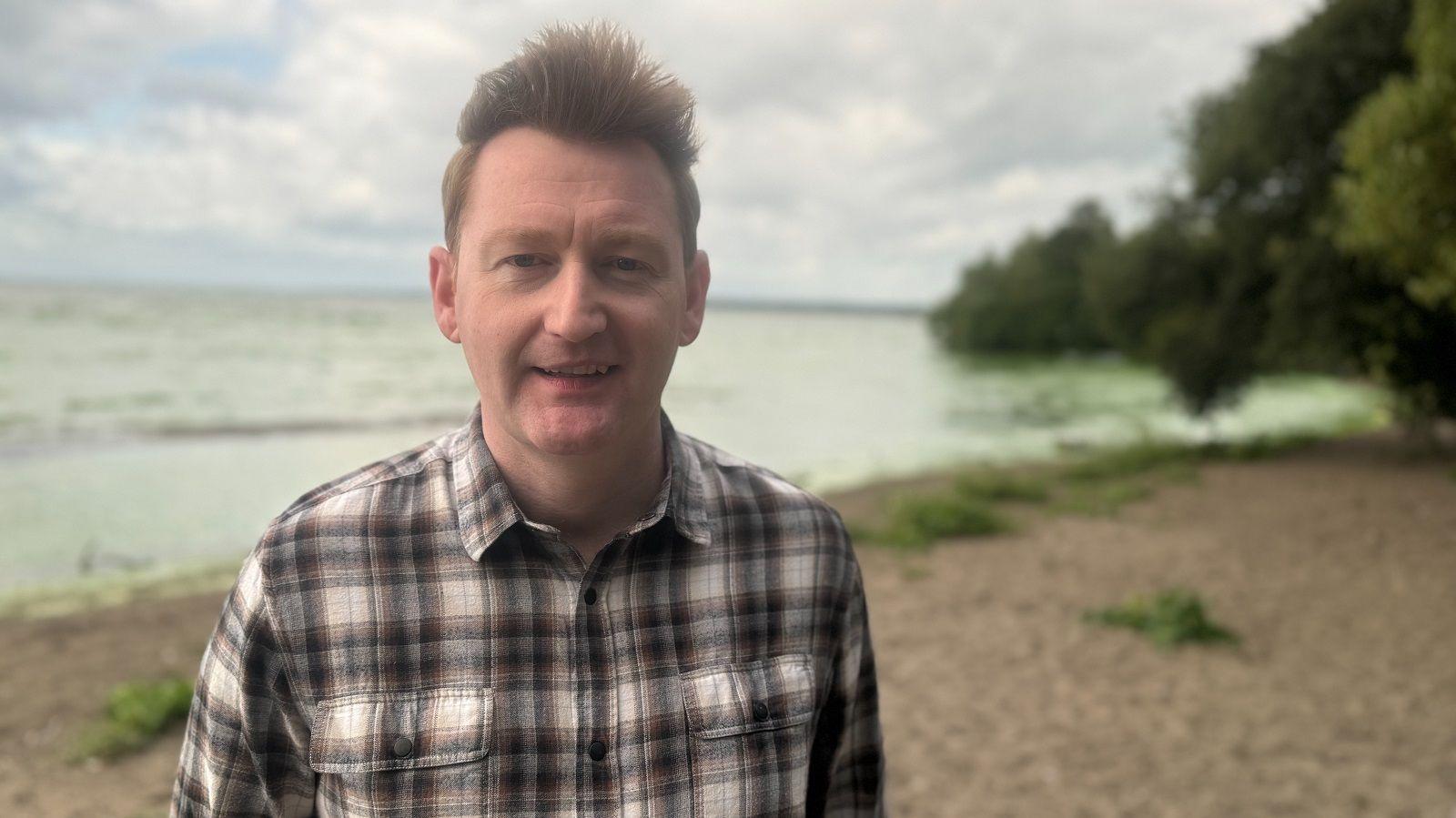Anglers told not to eat fish from Lough Neagh river
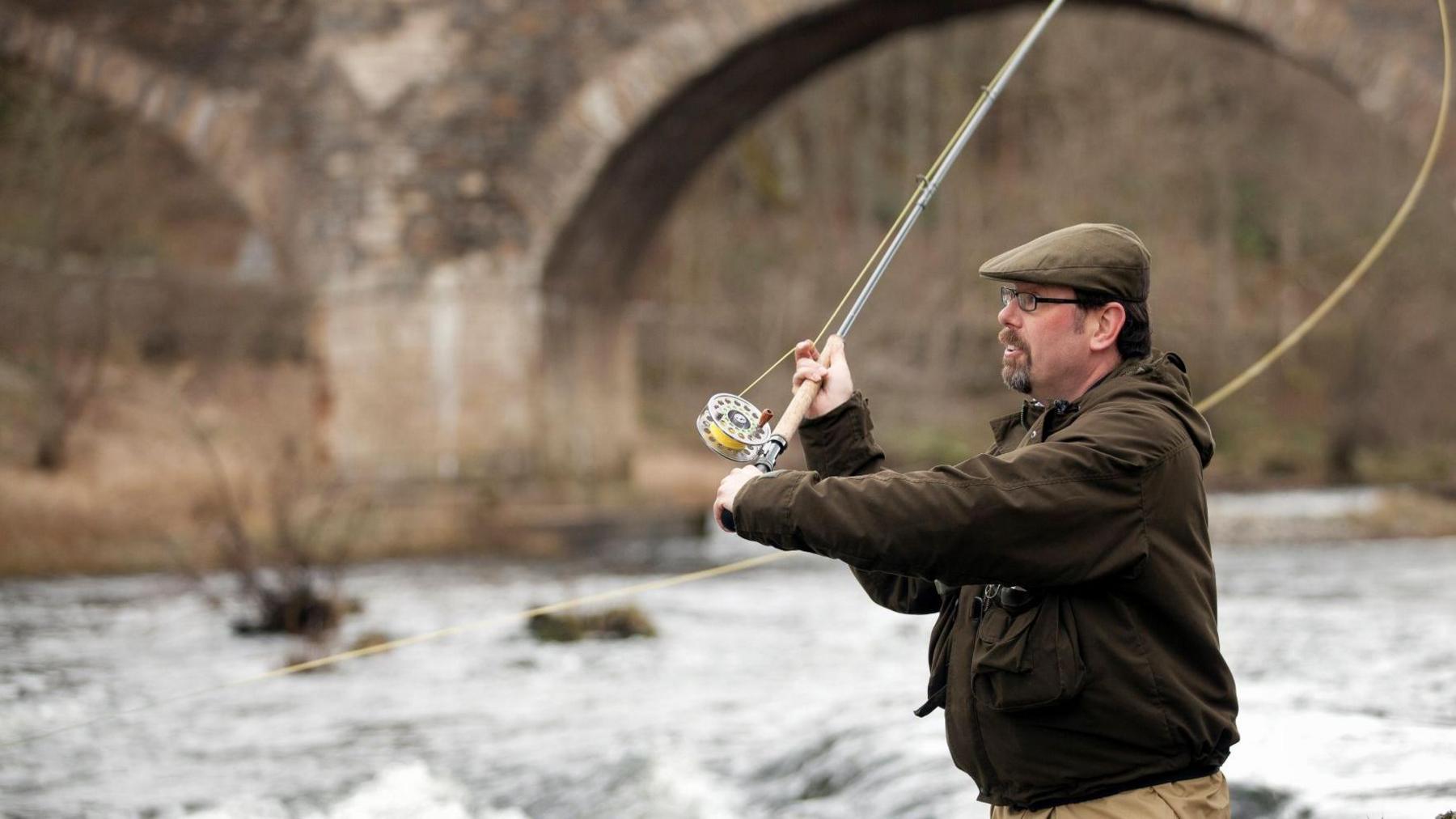
Antrim and District Angling Association advised its members against eating fish caught in the Six Mile Water river
- Published
A prominent angling group has advised members not to consume fish caught in one of the main rivers feeding into Lough Neagh.
Antrim and District Angling Association (ADAA) posted the advice on its Facebook page for anglers on the Six Mile Water river "for the foreseeable future".
More clubs have also joined the ADAA in advising members not to eat any fish they catch in the Lough Neagh system.
It comes after research by scientists at Queen's University Belfast found 13 potentially hazardous microbes in the algal mats that formed on Lough Neagh in 2023.
Blue-green algae is currently resurging.
The report confirmed the Lough's hypertrophic status - the worst category of waterways pollution.
The Crumlin and District Angling Association, Ballinderry Bridge Angling Club, Kells, Connor and Glenwherry angling Club on the Maine system and Ballynure have now expressed their concern.
'Take all precautions'
Officials from ADAA advised members to be "extra careful" when handling fish and to "take all precautions... to wash and sanitise after contact with water and fish".
The group manages most of the Six Mile Water and its tributaries.
The association's chairman Maurice Parkinson said while most of the club's members would return fish anyway, the large build-up of algae in the Lough and surrounding rivers had caused concern before the research was published.
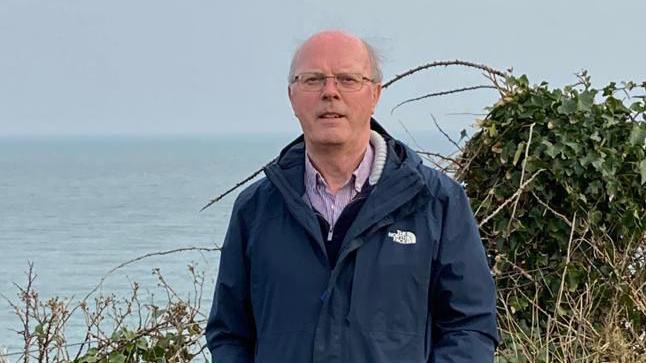
Maurice Parkinson has warned members to be cautious with their catches
"It's clearly an unknown situation as we go along," he said.
"Therefore we really said to our anglers really we can't take a risk here, and we've just got to use the precautions that we understand are applicable at this time.
"We're just being ultra-cautious."
The Crumlin and District Angling Association, Ballinderry Bridge Angling Club, Kells, Connor and Glenwherry angling Club on the Maine system and Ballynure have also expressed their concern.
No formal warning
There has been no formal warning not to consume fish from the lough this year.
After the blue-green algal crisis of summer 2023, the Food Standards Agency (FSA) advised against eating recreationally-caught fish while it carried out tests, external to determine whether they were safe.
Commercially-caught fish were classed as safe due to the processes in place for handling them.
The FSA found that fish caught non-commercially in Lough Neagh could also be safely consumed, as long as they were handled appropriately and cleaned thoroughly.
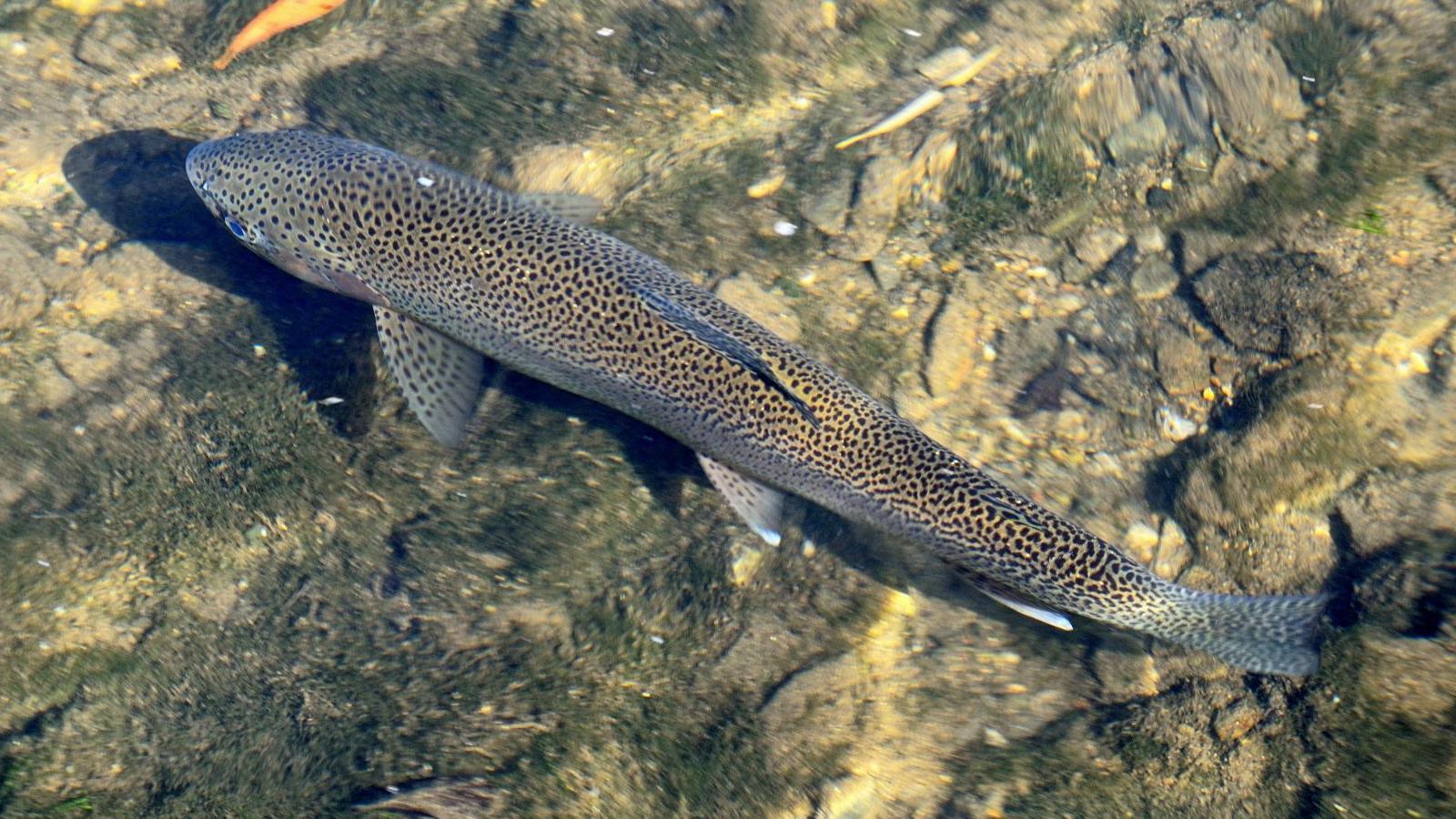
Fish, like brown trout, are often found in rivers that flow into Lough Neagh
While Mr Parkinson said he would "trust the science", he added that members had wider interests beyond angling.
"People are very concerned about the general river environment, the water quality and the other issues that are impacting on life in a broader sense," he said.
"So it is a broad interest, not just fishing or people just fishing for the sake of fishing or angling.
"And we like to think that when we angle it's almost like a measurement of the damage or welfare, if you like, of the environment in general.
"We like to be on the safe side, that is for certain, and on the better side of science as well."
Related topics
- Published5 August 2024
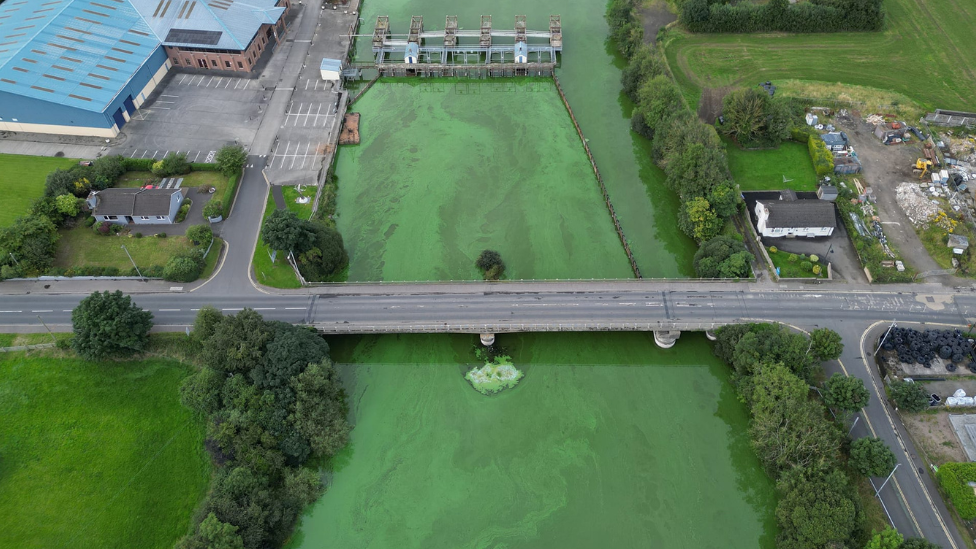
- Published6 August 2024
